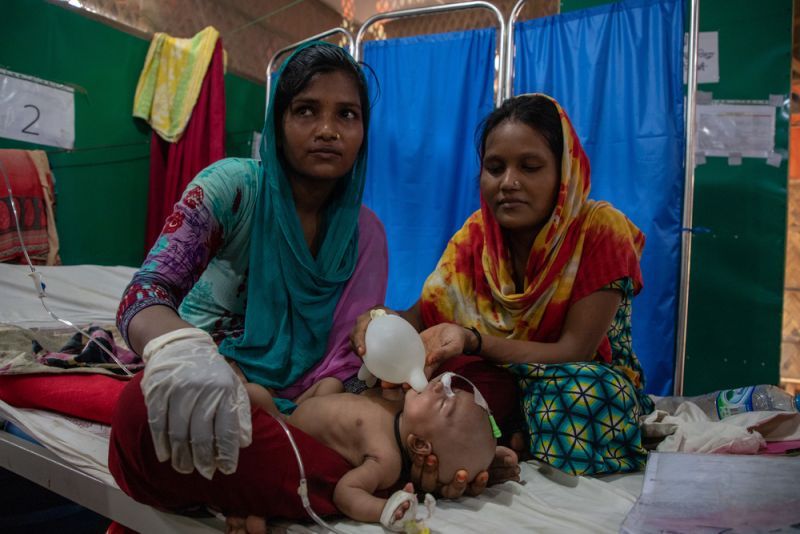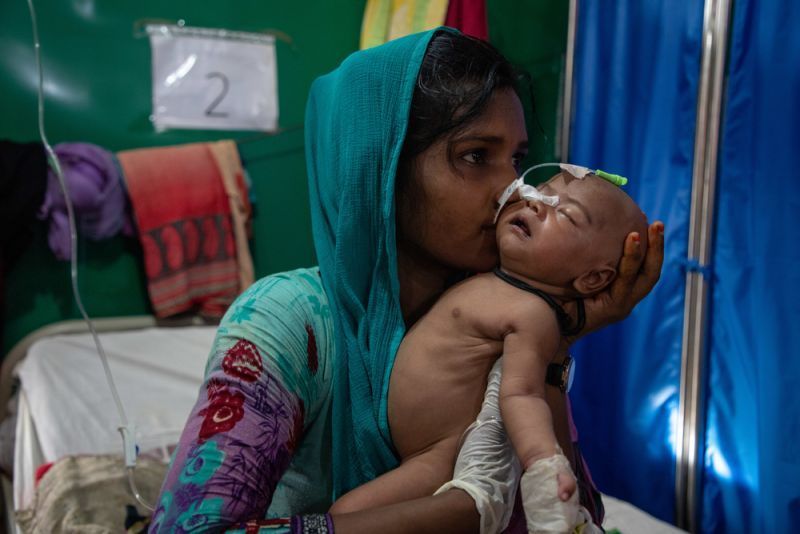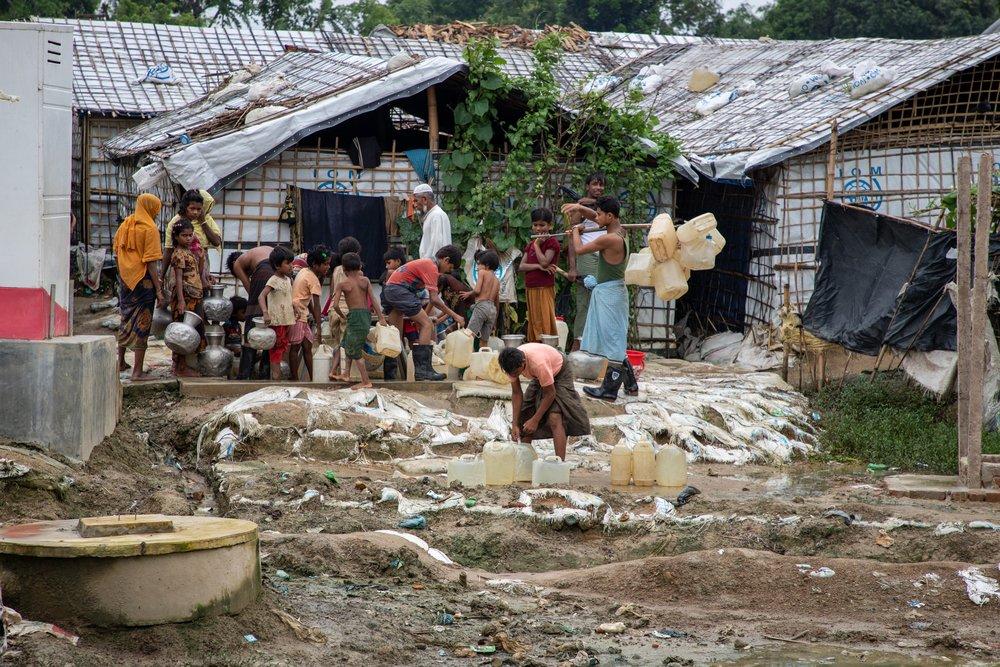“Water is a fundamental requirement for human life and the provision of safe drinking water can both prevent and limit the spread of communicable diseases. Access to safe and dignified sanitation facilities not only prevents the spread of disease but restores dignity to the community.” - Ryan Bellingham, MSF Water and Sanitation Coordinator
Water for Health
At MSF’s health facilities in Cox’s Bazar, many of the illnesses we treat, like acute watery diarrhoea, hepatises E and diphtheria are directly linked to poor water, sanitation and living conditions.
MSF’s water and sanitation teams are working to address this medical situation by providing clean water and sanitation facilities.
Water and sanitation teams also do community outreach, health promotion and disease surveillance to support and encourage healthy use of water and sanitation facilities and to track and respond to possible disease outbreaks.
In August alone, MSF teams held 1072 hygiene promotion sessions, and reached with over 4,000 people.

Fetching Water
In many refugee camps, the big challenge is the lack of water supply. Where the Rohingya makeshift camps are located, groundwater is relatively easy to extract. Groundwater in Bangladesh generally does not need to be “cleaned” or filtered, but it does need to be disinfected with chlorine.
“The real problem here,” says Water and Sanitation Coordinator, Ryan Bellingham, “is not the water in the ground; it’s the water that gets to the household.”
Women often fetch water at night or in the early mornings and children and men during the day. They use metal pots that each hold about eight litres of water, which they fill from the hand-pumps or taps in the camps.
They must navigate steep hills carrying these heavy containers, making several journeys throughout the day to collect enough water.
In their homes, water is stored in donated jerry cans or, if they can afford the cost, plastic drums. The water stored in these containers can easily become contaminated, especially if stored for more than a few hours.
Ensuring That Water is Safe to Drink
Water distribution networks are networks of pumps, tanks, pipes and taps, which allow water to be stored and treated and then distributed directly to taps near to where people live.
The major benefit of these networks is that all water can be treated with chlorine before it is distributed to households.
As water is pumped out of the ground, chlorine is added to kill off any contamination. This water is then pumped into water tanks, some of which hold up to 90,000 litres of water, before being distributed to taps close to people’s homes.
This process also leaves sufficient additional chlorine levels in the water (called Free-Residual-Chlorine or FRC) to kill any additional contaminants introduced during storage in water tanks, or after water is collected from taps and stored in people’s homes.
MSF teams also continue to distribute aquafilters in areas where a possible outbreak alert has been reported. Aquafilters are also distributed to patients being discharged from MSF’s hospitals, ensuring they have access to safe drinking water, which is especially important as they convalesce.

Who Benefits From MSF’s Water Networks?
MSF has already constructed several smaller water distribution networks and is now working on, a large water distribution system to provide chlorinated water to 81,000 Rohingya refugees living in the Kutupalong-Balukhali mega-camp.
This system will include 11 motorized solar-powered boreholes, 13 water tank holding nearly 100,000 litres each, and a water pipe system supplying over 200 water-points. This project is being implemented in partnership with Bangladesh-based international NGO BRAC.
Find out more about MSF's work in Bangladesh.
